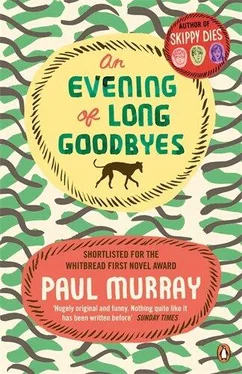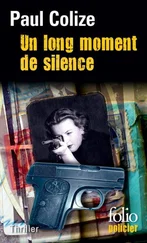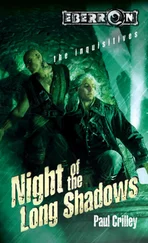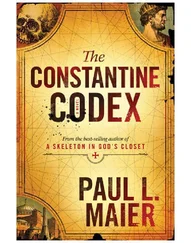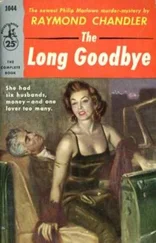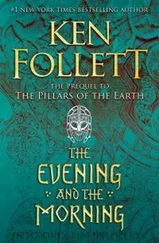‘At last,’ she resumed, ‘we find each other, scattered in different countries. I send money so they can come here. Everything is secret, if they are found they will be sent back. But we are lucky. The builders are kind men, they help us with food and papers, they make the Folly warm, they don’t tell you of what we do. I am not proud, to steal from you, to lie to you. But I am thinking, can they understand? Other things are not like this, they begin, they end. But when a home is gone, and they rub it from the map, then —’
‘Hang on —’ obviously this was an emotional moment, and I didn’t like to interrupt, but I had done the arithmetic on my fingers several times now and it still wasn’t coming out right, ‘ how many of you did you say there were?’
‘Mirela, my daughter, is asleep. She is sick, she needs rest.’
‘Oh.’ I rose slowly to my feet. ‘Asleep in the, ah…?’
‘The Folly,’ Mrs P nodded.
‘Right, right…’
‘What were you saying, Mrs P?’ Bel encouraged her. ‘About when your home is gone?’
‘Yes, that there is no end, because the ground is taken away that you walk on, so you must fall and fall —’
‘Excuse me a moment, would you…?’ No one paid any attention to me as I sidled out the door. Once out of their sight, I galloped down the steps and on to the wet grass. A livid roiling in the east signalled a storm coming in from the sea. The Folly emerged, stern and tenebrous, out of the night.
The bomb was just where MacGillycuddy had said, a deceptively homemade-looking bundle of wadding and tape wedged between two of the foundation stones. Thirteen minutes remained on the clock face: time enough if I hurried to get this blasted daughter out of the building and make myself scarce before it went up.
The doorway was a hole in the wall, braced by poles in plastic wrapping that whipped and rattled in the wind. Sweating feverishly, jabbed by iron prongs protruding from the stonework, I climbed the narrow stairs. Here and there little squares of yellow paper were pasted to the wooden skeleton, bearing inscrutable messages — builders’ reminders to themselves, I imagined, of tasks that now would never be completed. Halfway up the tower I came upon the piano, jammed immovably between stairs and ceiling. I squeezed past it, pushed up on the trapdoor at the top and poked my head into the room.
A solitary flame bounced about in the wind that stole in under the tarpaulin ceiling. In this gothic light, the belongings that confronted me on every side had a displaced, almost uncanny look about them; it was like walking into a fairground tent and discovering the museum of your own life. The ottoman, the teapot, the menorah; countless things I hadn’t even missed: a paperweight, beach towel, radio. Near the hatch was a foot-massager that Bel and I had gone dutch on as a Christmas present for Mother years ago, which I don’t think she’d ever even taken out of the box; beside it, a familiar table with familiar chairs, then familiar sleeping bags with familiar blankets and an old teddy bear that had fallen out of favour with me as I reached my teens. On the other side of the trapdoor, which was just off-centre of the circular room, were the valuables, piled up indiscriminately into a great mound like a dragon’s hoard. The coins, the pistols, the crystalware and silver, the gold and agate and ermine — all of it shored up in a corner with a literalism I found rather disarming: someone’s idea of a fortune, and what a fortune was able to do.
I should have mentioned earlier that in the sleeping bag nearest the wall was a girl, sitting up reading a dog-eared copy of the collected plays of Tennessee Williams. She was either pretending not to have noticed me, or else thoroughly absorbed in her book; either way, I found myself delivering a prefatory cough: ‘Ahem.’
‘Ah, there you are,’ the girl said.
‘Yes,’ I said, feeling somewhat trumped.
‘Come in, won’t you?’ she said politely, laying her book to one side.
‘Thank you.’ Without moving, she watched me haul myself through the hatch. ‘I knew you’d come sooner or later,’ she said. ‘What happened?’
‘Oh, bit of a dispute over at the house. Your, ah, your brothers were kind enough to step in…’
Even in the uncertain light I could appreciate that she was a striking girl, with the same fine black hair as her brothers and bold, imposing features. Her eyes were an intense, electrical blue, and didn’t so much meet as violently earth themselves in one’s own. It was something of a relief when she blinked.
‘It’s probably for the best,’ she pronounced lightly, in the same moderate, ambiguous tone; and then nodded, as if agreeing with herself. Her accent was softer than her mother’s and gave her voice a velvety, hypnotic quality. I suddenly felt in no hurry to leave. In her sleeping bag she began to hum to herself, winding a tress around her finger; then she stopped abruptly, as if something had occurred to her. ‘Do you want a drink? We seem to have acquired a large selection of wine all of a sudden.’
‘No,’ I said reluctantly, scuffing one shoe against the other. ‘Look — this isn’t entirely a social call. I came to tell you that the building’s about to explode.’
‘ Plus ça change ,’ she said, with a little smile.
‘I’m serious,’ I said. ‘You have to get out of here.’
‘How long do we have?’
‘I don’t know. Not long.’
She looked about the room as if seeing everything for the first time. ‘Such a shame,’ she said, with a kind of dispassionate regret. ‘Turn around, will you? I’ll have to put on some clothes.’
‘Certainly.’ I gallantly took myself off to the far side of the room and, ignoring a curious tapping noise from behind, looked through Mrs P’s purloined treasure trove. A plastic miniature of the Eiffel Tower had found its way in there: a memento from a childhood trip to France, mostly spent in hotel rooms waiting for Father to return from interminable conferences. He and Mother had fought like cat and dog. I wondered who had kept it. ‘I must say, I admire your sang-froid…’ I called over my shoulder.
‘I guess a girl picks things up on the road,’ she returned. ‘It’s all right, you can look now.’ I turned in time to see a bare arm plunge itself into a burgundy sleeve. She re-emerged and gave me a Lauren Bacall wink. Her skirt was pale and narrow and reached nearly to the floor. ‘Well? Am I presentable?’
‘Eminently.’
‘What about…?’ She gestured generally, taking in the Folly and its contents.
I hesitated. There wasn’t much hope for my plan now. Even if I could still carry off the death-faking part, which was looking increasingly unlikely, there was little chance of getting the insurance to cough up for all these obliterated valuables. Any gains made from my death would therefore be totally cancelled out; I would be exiled to Chile for nothing. My next thought was that the best thing to do at this stage would be to abandon the plan and limit the damage by grabbing what I could of the valuables and bringing them outside to safety. But then I realized that anything I saved would only be put up for auction. None of this was mine any more. It wasn’t anybody ’s: at least not anybody with a face and a name, who might have come up here with a martini and a half-bag of truffles of an evening to look out at the people walking their dogs on the strand. Perhaps it was something to do with this girl and the strange spell she cast, but it seemed to me suddenly that I would almost rather have our fortune blown up than see the bank sell it off to the highest bidder. If we were going to be destitute, we might as well do it in style. ‘Forget it,’ I shrugged. ‘We’ll always have Paris.’
Читать дальше
